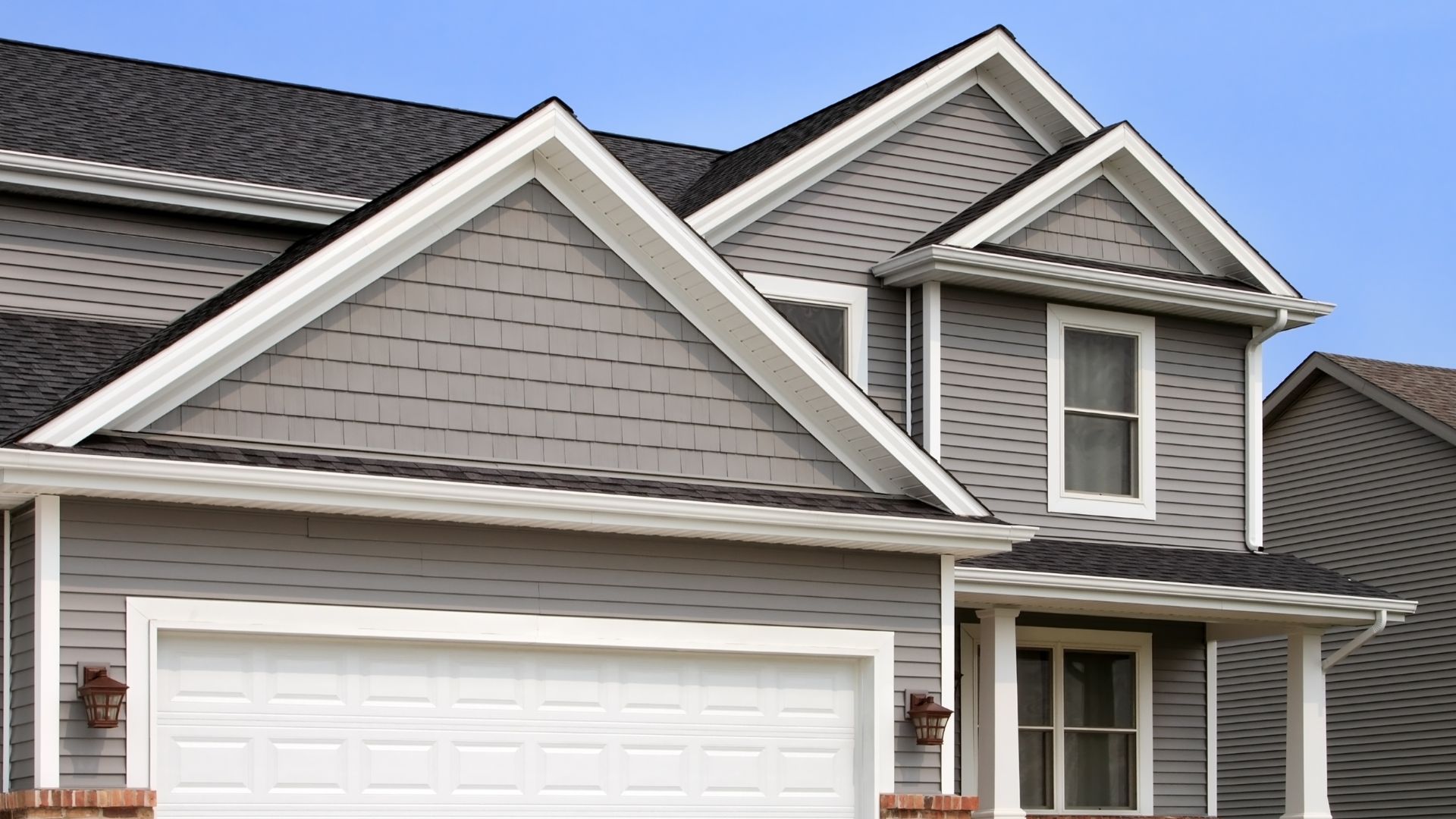
A Guide to Understanding Home Insurances in 2023
Insurance policies can often read like a cryptic novel, filled with unfamiliar terms and fine print. Homeowners find themselves crossing their fingers, hoping they’re adequately covered for unexpected damages. While numerous factors influence a homeowner’s insurance profile, one aspect frequently overlooked is the role of a home’s gutter system. By understanding how insurance companies evaluate home damages and the preventative measures gutters offer, homeowners can potentially save on out-of-pocket expenses and even premium costs.
The Basics of Home Insurance Coverage
Before diving into the specifics of gutter systems, let’s explore what a standard homeowner’s insurance policy might cover:
- Dwelling Protection: This is the core of any homeowner’s insurance, covering the structure of the house itself – walls, roofs, floors, and built-in appliances.
- Other Structures Protection: Beyond the main house, this covers structures like garages, sheds, and fences.
- Personal Property Protection: This extends to personal belongings, like furniture, electronics, clothing, and even some jewelry, up to certain limits.
- Liability Protection: If someone gets hurt on your property, or you damage someone else’s property, this part covers the legal costs and potential compensation.
- Additional Living Expenses: If your home becomes uninhabitable due to a covered risk, this can help pay for temporary living costs.

Delving Deeper into Home Insurance Coverage: What’s Included and What’s Not
Navigating the world of home insurance can be complex. While the basic premise is to offer financial protection against unexpected damages to your home and personal belongings, there’s often confusion about what’s covered under a standard policy and what’s not. Understanding these details can be the difference between a smooth claim process and unexpected out-of-pocket expenses.
Standard Coverages in Most Home Insurance Policies
1. Natural Disasters:
- Covered: Typically, insurance policies cover damage caused by natural events like fires, hurricanes, hail, and lightning.
- Not Covered: While these events are generally covered, other natural disasters like floods and earthquakes often require separate policies. Homeowners living in areas prone to these events should consider additional coverage.
2. Vandalism and Theft:
- Covered: If someone breaks into your home or vandalizes it, the damages and stolen items are usually covered under standard policies.
- Not Covered: However, there might be limits to how much the policy will pay for high-value items, such as jewelry, antiques, or art. If you have such valuable items, you might need an additional personal property endorsement or floater.
3. Accidental Discharges or Overflows:
- Covered: Accidental discharges of water from plumbing, heating, air conditioning, or sprinkler systems are generally covered.
- Not Covered: Gradual water damage, often resulting from a leaky pipe or roof, is usually not covered, as this is viewed as a maintenance issue.
4. External Forces:
- Covered: Damage from events like riots, explosions, or falling objects (like a tree) is typically included in the policy.
- Not Covered: Damage from war, nuclear hazards, or intentional acts are excluded.
5. Personal Liability:
- Covered: If someone is injured on your property, or you damage someone else’s property, your policy will typically cover the legal costs and potential compensation, up to the limit specified in your policy.
- Not Covered: Business activities or intentional injuries caused by the homeowner are not covered.
Common Exclusions in Standard Home Insurance Policies
- Normal Wear and Tear: Insurances don’t cover damages that result from the usual aging of your home or neglect. Maintenance is the homeowner’s responsibility.
- Sewer Backups: Damages resulting from sewer line backups aren’t typically covered. Separate sewer backup coverage might be necessary.
- Earth Movements: Events like earthquakes, landslides, or sinkholes usually aren’t covered. Specialized policies or endorsements are often needed for these risks.
- Governmental Action: If your property is damaged or destroyed by the government (for instance, during a legal seizure), insurance won’t cover the loss.
- Power Failures: Any damage due to power outages, unless the cause of the outage is a covered peril, is not usually covered.
- Faulty Workmanship: Damages arising from improper construction, renovations, or repairs aren’t covered. It’s essential to ensure that any work done on your home is by licensed and reputable contractors.
- Pets and Certain Breeds: While your pet might be your best friend, the damages they cause may not always be covered. Moreover, some insurance policies might exclude or charge higher premiums if you own certain breeds of dogs considered to be high-risk.

While a standard home insurance policy offers broad protection against many risks, it’s essential to be aware of its limitations. Always read the policy documents thoroughly, ask questions, and consider additional coverages if you feel there are gaps. And while this article highlights the importance of comprehensive home coverage, remember that the quality of your home, including systems like gutters, plays a role in its protection. Investing in your home’s upkeep can be just as crucial as investing in the right insurance policy.
The Intricacies of Water Damage Coverage
Water damage claims can be tricky. While insurance typically covers sudden and accidental damages—like a burst pipe or an overflowing washing machine—long-term damages due to lack of maintenance or wear and tear often aren’t covered. This is where the gutter system becomes crucial.
Understanding Water Damage Coverage in Home Insurance
Water damage, one of the most prevalent causes of home insurance claims, can emerge from various sources. Its extent and origin can greatly impact whether it’s covered under a homeowner’s insurance policy. By comprehending what is and isn’t typically covered, homeowners can take appropriate preventive measures and ensure they’re adequately protected.
What is Typically Covered:
- Sudden and Accidental Discharges: If a pipe bursts or your washing machine suddenly overflows, causing damage, such unexpected events are typically covered. This means the resultant damage from water suddenly released from plumbing, HVAC systems, or household appliances is often insured.
- Roof Leaks: Water damage from rain or snowmelt that enters a home through a roof is generally covered, provided the cause wasn’t due to negligence or a lack of maintenance.
- Vandalism: If someone intentionally blocks your gutters causing water backup, or damages your roof allowing rain to enter, such damage is usually covered under the vandalism clause.
- Damage from a Firefighting Effort: In the unfortunate event of a house fire, the water damage resulting from firefighting efforts is generally covered.
What is Typically Not Covered:
- Maintenance Issues: Gradual damage, like a slow, persistent leak or an aging roof, isn’t covered. Such damage is considered a result of negligence or lack of maintenance.
- Flooding: One of the most significant exclusions in standard policies is flooding, whether from heavy rains, river overflows, or storm surges. Homeowners need a separate flood insurance policy, especially if they reside in flood-prone zones.
- Ground Seepage: Water that seeps into a home from the ground, causing basement or foundational damage, typically isn’t covered.
- Backup from an External Sewer or Drain: If water backs up into a home through sewers or drains, or if water overflows from a sump pump, a standard policy might not cover the damage. However, homeowners can often purchase additional sewer backup coverage.
- Intentional Acts: If you intentionally cause water damage to your home, insurance won’t cover it.

Gutter Systems and Water Damage Prevention:
One might wonder how gutter systems relate to all of this. Properly functioning gutters play an essential role in water damage prevention. They direct rainwater away from the foundation, walls, and other critical parts of a home. By doing so, they mitigate the risk of basement flooding, foundation damage, and mold growth, all of which could lead to potential insurance claims.
Therefore, while examining the intricacies of water damage coverage, homeowners should also consider the state of their gutter systems. Upgraded, well-maintained gutter systems can potentially prevent various forms of water damage, saving homeowners from the heartache of denied claims and out-of-pocket repair expenses. Remember, prevention is always better than cure, and in the context of home insurance, better than a claim.
The Preventative Power of Gutter Systems
Gutter systems, while often overlooked, are integral to the health and longevity of a home. A well-maintained gutter system acts as a shield, safeguarding the structural integrity of your property and preventing potential damage that could lead to costly repairs or insurance claims. Let’s delve into the critical ways gutter systems provide protection:
1. Foundation Protection:
Water that spills over from clogged or malfunctioning gutters can pool around the base of your home. Over time, this accumulated water can erode the soil surrounding your foundation. As the water seeps into the foundation’s cracks and crevices, it can freeze during colder months, causing the cracks to expand. This not only weakens the foundation but can also result in basement flooding. Properly channeled water, courtesy of an effective gutter system, drastically reduces these risks.
2. Preventing Mold Growth:
When water doesn’t flow away from your home, it creates damp conditions favorable for mold growth. Mold can not only damage the structural components of your home but also pose significant health risks to its inhabitants. By ensuring that water is directed away from your house, gutter systems play a pivotal role in preventing mold proliferation.
3. Safeguarding Landscaping and Soil Erosion:
Unchecked water flow can wreak havoc on your landscaping. Flower beds, shrubs, and other plantings can be eroded or drowned by cascading water. Additionally, soil erosion can alter the topography of your yard, making it more prone to flooding. Efficient gutter systems protect your landscaping investments and maintain the beauty of your outdoor space.
4. Protecting the Home’s Exterior:
Water streaming down the sides of your house can damage its siding, paint, and overall aesthetic appeal. Over time, this constant water exposure can lead to rot, compromising the structural integrity of the walls. Gutters capture this water and direct it safely to the ground, ensuring your home’s exterior remains pristine.
5. Preventing Ice Dams:
In colder regions, a faulty gutter system can lead to the formation of ice dams. Ice dams occur when trapped water in the gutter freezes, preventing proper drainage. As the ice expands, it can push up under roof shingles, leading to leaks and potentially significant roofing damage. A well-maintained gutter system minimizes the risk of ice dam formation.

The Insurance Angle:
While homeowners insurance might cover some forms of water damage, consistently claiming for such damages can lead to increased premiums or even policy non-renewal. Furthermore, if an insurance adjuster determines that the damage resulted from neglected maintenance (like not cleaning or repairing gutters), the claim could be denied altogether.
An efficient gutter system is an unsung hero in home protection. By proactively ensuring your gutters are in top shape, you not only safeguard your home’s structural and aesthetic integrity but also potentially save thousands in repair costs and insurance premiums. If there’s one takeaway from this, it’s that preventive measures, like maintaining your gutters, often prove more cost-effective than reactive solutions.
While gutters might seem like a minor aspect of a home, their impact on both the structural integrity of the house and potential insurance claims is substantial. By investing in a proper gutter system, homeowners not only safeguard their homes but also navigate the intricate world of insurance with confidence.
Potential Insurance Premium Savings
Insurance companies love risk reduction. A house equipped with an efficient gutter system can be viewed as a reduced risk in terms of potential water damage. Some insurance companies might consider this when calculating premiums, rewarding homeowners who’ve invested in robust gutter systems and regular maintenance.
How Do Insurance Premiums Work?
Home insurance premiums are calculated based on a myriad of factors, including the perceived risk associated with insuring a property. Among the many variables considered, the condition of the home and the likelihood of a claim being filed play a significant role. When homeowners are proactive in maintaining their property, especially in areas that can lead to significant damage, they may find themselves eligible for reduced insurance premiums. Here’s how:
Home Maintenance and Reduced Risk
Insurance companies thrive on assessing risks. Homes that are well-maintained present a lower risk compared to those that aren’t. This reduced risk can translate to potential savings for homeowners in the form of lower insurance premiums.
For instance, when gutters are kept in optimal condition, the chances of water damage decrease. Water damage is one of the most common reasons homeowners file insurance claims. By showing your insurance provider that you’re taking steps to minimize this risk, they may offer discounts or reduced rates.

Discounts and Incentives
Many insurance companies offer specific discounts for homeowners who invest in protective measures for their property. These can range from discounts for having a security system to mitigate the risk of burglary, to savings for homes equipped with modern plumbing to reduce the chance of water damage.
While not every insurance company might advertise a discount specifically for maintained gutter systems, a well-kept home overall can lead to a general “home maintenance” or “loss mitigation” discount. It’s always a good idea to discuss with your insurance agent and inquire about potential discounts related to home maintenance and preventive measures.
Claim-Free Record
By maintaining areas of your home, such as the gutter system, you potentially avoid numerous issues that could lead to an insurance claim. Insurers often reward homeowners who have few or no claims with a “claim-free” discount. In the long run, having fewer claims in your history can lead to significant savings on your insurance premiums.
Enhanced Home Valuation
While this doesn’t directly relate to insurance premium savings, it’s worth noting. Homes that are well-maintained, especially in areas that potential buyers might overlook, can fetch a higher market price. A well-functioning gutter system, for instance, indicates to potential buyers that the homeowner has been diligent about property upkeep, making the property more attractive.
The logic is simple: a well-maintained home poses less of a risk, and insurance companies reward risk mitigation. By staying on top of home maintenance, especially in areas that could lead to significant damages, homeowners can not only ensure the longevity and safety of their property but also enjoy potential savings in insurance premiums. As with any financial matter, it’s always a wise strategy to discuss with professionals, be it your home maintenance contractor or insurance agent, to ensure you’re maximizing benefits while safeguarding your investment.
Should you ever feel the need to revamp or check your gutter system’s efficiency, remember that a minor investment now can save significant expenses in the future. And if that day comes, know that we’re here to help with all your gutter system installation needs.
